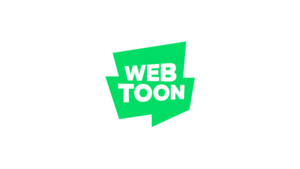WEBTOON Disputes Union's Unpaid Labor Allegations
by Wonhee Cho,
Hume emphasized that the original article “refers exclusively to Naver WEBTOON in Korea” and not the company's U.S. operations. He also noted that WEBTOON creators are not employees of Naver WEBTOON and the disputes lie with contest-related contracts, as originally stated in Anime News Network's article.
The company rejected the claim that creators are required to produce episodes without pay before signing official contracts.
“Contracting is immediate for contest winners. For works proceeding to official serialization, we request three manuscript episodes. Although extremely rare, even if serialization does not proceed, we compensate the creators for the work produced. Claims of unpaid labor are, therefore, inappropriate and untrue,” Hume said.
According to a WEBTOON creator candidate who reported their experience to the union, creators selected through company contests are often required to produce three to eight full episodes before signing an official contract. During this period, they claim they are also asked to refine materials such as storylines and character designs initially submitted for the contest—without any payment.
The revision period, the union said, can last from several months to as long as three years. One artist told ANN, “I went through dozens of revisions. The editors interfered constantly, and even after a year of agreement with my producer, a new supervisor came in and told me to start over.”
Naver WEBTOON also disputed descriptions of its contract terms included in the original report. The company stated that the claim WEBTOON retains partial intellectual property rights or uses works for AI training without consent “is factually untrue.”
“Creators maintain full rights to their underlying IP, and we do not train AI on creators' content,” Hume said.
The WEBTOON Creators Union provided ANN with sections of a Naver WEBTOON contract, claiming it allows the company to retain partial intellectual property rights permanently and to use works for AI training without explicit consent. The portion of the contract reads (translated from Korean):
The Provider grants NAVER WEBTOON permission to use the content, either directly or through its affiliates, for research purposes aimed at improving NAVER WEBTOON's services and enhancing system performance. The term “use for research purposes” under this clause specifically includes the following:Use as data for research projects conducted by NAVER WEBTOON's internal researchers;
Provision of data to universities or other academic institutions when NAVER WEBTOON engages in joint industry–academic research projects;
Use as data for joint or commissioned research with NAVER WEBTOON's affiliates.
WEBTOON Creators Union head Shin-a Ha told ANN, "The contract allows Naver to use creators' works as research data at its own discretion — meaning the content can be used as AI training material without limitation."
Kim Dae-sik, the WEBTOON AI and data lead at Naver WEBTOON spoke with Korea JoongAng Daily in March. The company has since introduced the AI Painter tool for creators, AI-driven curation for readers, ToonRadar—an online piracy detection system—various camera filters, and a character chat program.
"We built the AI and data team so that we don't just sprinkle a little bit of AI here and there, but to fully incorporate AI into the fundamentals of the company," Dae-sik said.
Addressing concerns about creators needing prior approval before working with other agencies or pursuing outside projects, Hume called the interpretation “a misunderstanding.”
“There is no obligation to inform the platform. Signing a management contract is 100% the author's choice,” Hume explained. “We offer a variety of contracts based on a creator's expectations and goals. Exclusivity is common in the industry, and commission fees are always disclosed and tailored to support the creator's ambitions.”
The Union claimed that some contracts reportedly include a clause requiring prior approval from the platform before a creator can collaborate with other agencies or engage in creative activities elsewhere. The union added that Naver WEBTOON takes a portion of the compensation when creators give paid lectures or media appearances.
The company also objected to characterizations suggesting a lack of transparency in its payment or ranking systems.
“Since 2012, we have operated a system that allows creators to view their sales in real time, transparently disclosing settlement and payment processes,” Hume said.
A creator currently serialized on Naver WEBTOON said anonymously, “Even with global success, we see very little return. In some markets, Naver takes up to 90% of overseas revenue—sometimes 70% at best. Many creators accept it because 10% is still enough to live on. But there's no transparency about how rankings, promotions, or ad spending are managed. We don't know how many people read our work for free or what the actual metrics are. We just take what they give us.”
The creator continued, “Naver benefits from our creativity while withholding business information and refusing to improve its revenue-sharing model. The CEO received around $30 million in cash and stock options after the IPO, while no creator received any comparable incentive.”
The company refuted the claim that it retains up to 90% of overseas revenue, calling it inaccurate and unrepresentative of its actual revenue distribution structure. ANN requested further information on Naver's current revenue distribution structure, but requests for comment were not returned.
Naver WEBTOON is South Korea's largest webcomic platform. The company was accused of unfair labor practices during South Korea's annual National Assembly audit.
discuss this in the forum (6 posts) |
back to Unpaid Labor Allegations Cast Shadow Over Naver WEBTOON's Market Dominance
Feature homepage / archives